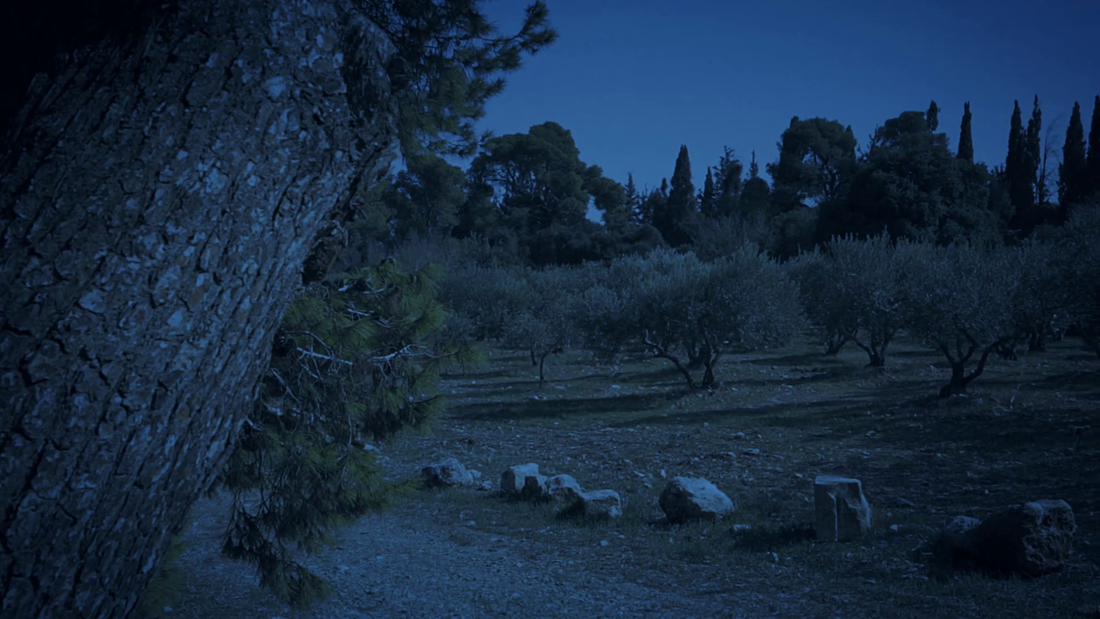|
BY JORDAN MAYER
“The grass withers, the flower fades, but the word of our God will stand forever.” (Isaiah 40:8) Next to where I work, there is a network of walking and biking trails. Over the past year, I’ve made it a habit to get out of the office for a bit and take a walk through the woods. Besides being a nice mid-day retreat, I’ve found it to be an interesting way to experience the changing seasons. I started walking the trails in early spring. At this point, the trees are bare, the air is cool, and the ground is peppered with patches of brown and white. But soon the seemingly lifeless wood springs forth into life. First a few green buds appear on the trees as flowers begin to poke through the ground. Day by day, the green begins to take back the forest. By the time summer arrives, the once desolate landscape is lush with life, the birds chirp happily overhead, and the air is warm on your skin. But in a few short months, the woods are transformed yet again. A chill is present in the air, the canopy of trees transition into a dazzling array of red, yellow, and orange. After a of couple weeks, the path I walk is littered with leaves and the trees overhead are bare. Soon the woods as I had known it before will take on a new character as it becomes covered in a blanket of white. They say the only constant in life is change. Nature is an apt reminder of this idea in its predictable cycles and seasons. We know this intuitively from our daily life as well. Often we mark our lives by the significant changes and transitions that occur. So when we read Isaiah 40:8, we are meant to see a stark contrast. Though the seasons change, or a new politician takes office, or a pandemic strikes, God's Word does not change. His Word does not change because God, himself, does not change. In Hebrews, we are reminded that “Jesus Christ is the same yesterday and today and forever” (Hebrews 13:8). Why is this significant? This is significant because His promises still stand. The Gospel is still the Good News for all the world. Ever since the beginning of creation, God has had a plan of redemption for His people. In His loving mercy He sent His Son into the world to die on our behalf, to pay the debt that we could never afford to pay. “For the wages of sin is death, but the free gift of God is eternal life in Christ Jesus our Lord” (Romans 6:23). This gift of eternal life is still freely offered, the invitation is still open. Will you accept it? And for us who are in Christ, we live in the confidence and assurance of these promises, waiting for their ultimate fulfillment when our Lord and Savior returns. When God made His promise to Abraham, to bless and multiply him, he swore an oath by Himself. "So when God desired to show more convincingly to the heirs of the promise the unchangeable character of his purpose, he guaranteed it with an oath, so that by two unchangeable things, in which it is impossible for God to lie, we who have fled for refuge might have strong encouragement to hold fast to the hope set before us" (Hebrews 6:17-18). Praise God for His unchanging nature and His unfailing promises! BY JOYCE PELLETIER
It’s the night of the last supper. The disciples gathered around the table, reclining having what they thought was just the end of the traveling day and it’s time for supper. The meal is spread before them. Jesus takes the cup and shares it with them. They partake, somewhat questioning after Jesus just said in John 16:16, “In a little while you will see me no more, and then after a little while you will see me.” Those at the table question silently in their hearts what was meant by what he just said? None of them speak a word. Yet all wondering in the silence of their hearts. What does this mean? Where is Jesus going next? He’s always going from one place to another. In John 16:19 – 22, he says, “Are you asking one another what I meant when I said, ‘in a little while you will see me no more, and then after a little while you still see me?” I know I’d be questioning this if I were sitting there. Soon after the meal is done, in John 17:1 He goes out to the garden to pray. Calling out, “Father the hour has come. Glorify your Son, that your Son may glorify you.” A little further, He prays, “I have revealed you to those whom you gave me out of the world. They were yours; you gave them to me and they have obeyed your Word. Now they know that everything you have given me comes from you. I gave them the words you gave me, and they accepted them. They knew with certainty that I came from you, and they believed that you sent me. I pray for them! I am not praying for the world but for those you have given me, for they are yours.” This is one of my favorite prayers ever. When I read this, it’s so amazing to think that Jesus actually prayed for me. He personally, at his most grievous hour prayed not for himself, but for me, for you. This is a mind-boggling thought. When I think of the times when a loved one has died and I attend their funeral and realized He prayed for them, too. Yet, at that moment, I am comforted. Why? Because of Jesus, my grief does not go unnoticed, but He stands in the middle of any situation that grieves me and give purpose and reason to what I am going through. He knows my pain, and somehow, I knew His. Before my last spine surgery, as I went through a bone scan, I had to hold my arms above my head for 40 minutes. My tendons cried out; the bones wanted to be held up by someone so they didn’t move. I laid there in agony, gritting my teeth, yet I was not allowed to move. I started to pray, as there was nothing else I could do. Suddenly, in those difficult moments, as I prayed, I realized that He knew my pain (on the cross) and moments later, I knew His pain. That solidified my prayer and not long after they released my arms and put them by my side, until the final moments of the test was done. I felt relief beyond relief. Joy was restored and the test was done. All because Jesus prayed for me and I survived this test. BY JORDAN MAYER
“But the word of God increased and multiplied.” (Acts 12:24) If you want to be reminded of the transformative and supernatural work of the Gospel, the book of Acts is a great place to go. We see the birth of the early church, the Good News preached with boldness and abandon, and multitudes of people professing Christ as their Savior. The excitement and energy ripples through these pages of Scripture. In finance, there’s something known as compounding interest. Once an initial investment has been made, it begins to earn interest. This interest then compounds on itself, meaning it earns interest on the interest. As a result, the initial amount invested grows at an exponential rate. Where God’s Word is being preached, we see this compounding effect at work. Notice the language of the verse. Not only does the Message grow, it multiplies! I am not much better equipped to explain the "magic" of internal combustion than our pastor was, but I understand the basic idea. Upon the initial light of the spark, a chain reaction is created. Far from a slow and controlled release of energy, a series of mini explosions are unleashed inside the engine. Once it has started, there’s nothing stopping it. This is the effect that the Gospel has as it takes root in people’s hearts. One person hears and believes, and then tells their friends and family. They hear and believe, and then tell others. On and on it goes as the Word, living and active, spreads further and farther than before. It is no surprise that opposition soon arises. It was present in the apostles’ day. But though some are killed and others placed in chains, the Gospel cannot be contained. Acts 12:24 comes directly after Peter’s miraculous rescue from prison. In the unfolding of events, Herod falls dead on the spot for failing to give glory to God (Acts 12:23) and what is the end result? “But the word of God increased and multiplied.” (Acts 12:24) As much as we see this play out in Scripture, we witness this in real time. Just as I was writing this post, Lance and Kim Ahn’s missions update landed in my inbox. It is a reminder that the power of God’s Word is still in full effect. The Gospel is being preached and people are responding in faith. Praise God! You see, we are not peddlers of some ancient, religious teaching. Rather, we are messengers of the life-giving truth of the Gospel that has the power to change lives for eternity. The same Message preached to the people in the apostles’ day is the same Message which we proclaim. And it is not mere words, for the Gospel is the very power of God for salvation (Romans 1:16). What a mind boggling reality to think of the work we join in as laborers of the harvest. We join in a high and noble cause, one passed down through the centuries, impacting millions of lives for this life and the life to come. Just as we have heard the Truth and been sealed with the Spirit (Ephesians 1:13), let this initial down payment in our own lives continue to bear interest in the lives of those around us. Let the Truth be known, let the Gospel be preached, and by God’s grace and power let it increase and multiply! BY JORDAN MAYER
"It is good for me that I was afflicted, that I might learn your statutes." (Psalm 119:71) A few years back, I had a goal to learn how to ride a motorcycle. Having never been on a bike before, I signed up for a three-day safety course. The first day was devoted to classroom instruction with the second two days spent out in the parking lot practicing drills. The drills were meant to emulate the different situations you might encounter out on the road in the real world. One of the drills involved a long straightaway followed by a sharp left-hand turn. The goal was to get the bike up into second gear (around 15-20 MPH) and then slow down before entering the turn. Given my conservative nature, I intentionally kept my speed down so I could cruise comfortably into the turn. My instructor, on the other hand, had me repeat the drill several times, pressing me to go a little bit faster. Finally, after repeated reminders, I gave the throttle a good twist. It was on this attempt that I knew my lack of speed would not be an issue! Before I knew it, I had reached the end of the straightaway and was already into the turn going way too fast. In a car, a miscalculation in a turn can be easily remedied by a firm press of the brake pedal. You don't have to worry about things like "lean angle" and "gyroscopic forces" like you do on a vehicle with only two wheels. In the middle of the turn, I gave the front brake lever a hard squeeze and before I even had time to process, the bike and I were sliding across the pavement. Apart from a wounded pride as the rest of the class looked on, I came away with only a few minor scratches and some torn gloves and shirt sleeves. If someone had asked me if I wanted a literal crash course in motorcycle braking and speed control, I would have said, "No thank you". If someone had asked me if it was a fun experience, I would question their definition of fun. And yet, the experience was immensely valuable because of the lessons it taught me. I think the same is true with the trials we face in life. I would love to say that the periods of rest and ease were also the times of greatest growth and development in my faith and trust in God. Sadly, that is not often the case. My tendency in these times is to think I need God less, that I seem to be managing pretty well on my own. But how quickly we come back to earth when hard times come. It is in these moments that we see how the trials we face can be the catalyst for learning and growth. Wisdom would teach us that it's best to learn from the mistakes of others. While that is certainly true, we know by our nature that that is not often the reality. The reality is that our pride often prevents us from accepting truths at face value. Sometimes we need to learn the hard lessons. Sometimes we need to come to the end of ourselves to reach a new beginning with God. Sometimes we need trials. But can we honestly call them good? Trials are not good by nature, they are good by design. This is what the Psalmist is getting at when he says it is good to be afflicted. It's uncomfortable, it hurts, but there is purpose in the pain. Before the trial, he strayed. But now that he's gone through it, he keeps God's Word (Psalm 119:67). It has drawn him closer to God and helped him better understand His Word. It is good because its purpose is good. Romans 8:28 tells us, "And we know that for those who love God all things work together for good, for those who are called according to his purpose". Likewise in James, we are reminded of the faith-building properties of trials. It is the testing of our faith that produces steadfastness (James 1:3) and it is those who remain steadfast that are called "happy" or blessed (James 1:12). While it's true that we won't often choose the trials we encounter, we can choose to trust in the God who allows them. We can trust that He is good and that He works all things for our good. We can thank Him for the lessons learned from bumps and bruises. |
Archives
July 2024
Categories
All
|





 RSS Feed
RSS Feed